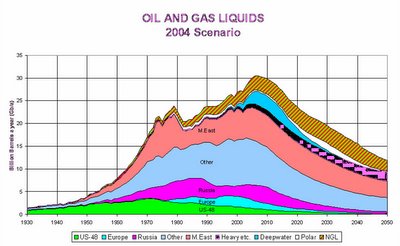
I will be spending the holidays with family. I don't know if I'll have any time to blog, so if I don't get to say it later, Merry Christmas and Happy New Year!
P.S. Poohtie Cat says Happy Holidays, too.
A place to explore the connections between community and sustainability. Feelings are welcome.

Connect your appliances into the Kill-a-Watt, and assess how efficient they are. A large LCD display counts consumption by the Kilowatt-hour just like utility companies. You can figure out your electrical expenses by the hour, day, week, month, even an entire year. Monitor the quality of your power by displaying Voltage, Line Frequency, and Power Factor.
The Smart Strip Power Strip features advanced circuitry that not only offers excellent power surge protection and line noise filtering, but is actually able to 'sense' the flow of electrical current through the strip's control outlet. Because of this unique ability, the Smart Strip can turn off selected equipment when its not in use -- creating benefit that no other power strip on the market today can offer.

 Jib Jab has done it again. I just saw their new video--"2-0-5" in review--on CNN. And I'm still chuckling. Have at it.
Jib Jab has done it again. I just saw their new video--"2-0-5" in review--on CNN. And I'm still chuckling. Have at it.
[t]he first step in addressing any problem is to understand it. We need a really good definition of the challenges that lie ahead--technical, social and economic. Thus we start with a thorough review of the energy market. We need a realistic forecast of America's energy requirements by fuel type by year for the next 20 years. Fuel types fall into two basic categories: fuels for mobile applications (cars, trucks, railroad engines, airplanes, etc.), and fuels for stationary applications (power plants, furnaces, generators, pumps, industrial motors, etc.). Then we need a forecast of fuel resources by type by year for the same 20 year period. The supply forecast must include a conservative estimate of resource depletion, potential political challenges, and international competition for available fuels. Our market plan should also examine future cost/price trends and their potential impact on our economy.Cooke goes on to describe the "three key components of a successful business plan." It would be administered by a large organization that must manage the project. None of the components are in the 2005 act.
Where shortages appear in our forecast--and they will--we need to review alternative solutions. Again, there are two categories: energy efficiency and new resource development. Since energy efficiency improvements provide us with the quickest and cheapest solution, all avenues of improved energy efficiency must be defined and quantified. The remaining energy shortfall defines the annual fuel volume requirements of our resource development objectives.
With this Fourth Draft, we have refined our focus, sharpened our message and begun to build the financial models to support the plan, including both a funding model and target investments for each specific proposal.It sets a legislative agenda for transportation, power generation, the environment and regulatory framework, efficiency and education, and funding the campaign. The authors are asking for feedback on several levels: rhetorical, political, cost/benefits, and even the wording.

My background is in the teaching of permaculture for many years, giving people the tools to create more sustainable ways of living in their own gardens and families. Since I found out about peak oil, I have become fascinated by how we apply these principles to whole towns, whole settlements, and in particular, to how we design this transition in such a way that people will embrace it as a common journey, as a collective adventure, as something positive. So much peak oil and other environmental literature is doom-laden and information heavy, and most peoples’ reaction is to switch off. How can we design descent pathways which make people feel alive, positive and included in this process of societal transformation?It is heartening to read, in fact he makes a conscious decision to include Heart in his work:
In September 2005 I moved to Totnes in Devon, to begin a PhD at Plymouth University looking at Energy Descent Action Plans, refining the model in such a way that they can be done anywhere. This involves looking at what I call the Head, the Heart and the Hands of Energy Descent. By the Head I mean the concepts of peak oil, arguments for and against localisation as well as any historical examples that we can learn from. The Heart refers to exploring how to actually engage communities in a positive and dynamic way, how to use peak oil as a tool for empowerment rather than leaving people feeling helpless. This part of the exploration is about how to actually facilitate change, and the dynamics of cultural transformation. The Hands refers to the practical aspects, could the UK become self sufficient in food and how? How much well managed woodland would it take to heat a town with efficient CHPs? Can local materials be used to retrofit houses?
This reminds me of the 4H pledge that Mr. Logan taught me:
I pledge My head to clearer thinking,
My heart to greater loyalty,
My hands to larger service, and
My health to better living,
For my club, my community, my country, and my world.
I thouroughly enjoyed every entry and invite you to visit often.
Dear Members:He goes on to say that they will send out an energy professional to our homes to discuss how we can lower our energy usage.
Those of you who have lived in Georgia for at least one summer know that, on a hot summer afternoon when the clouds get dark and you hear thunder off in the distance, we are about to have a storm. People adjust their plans and get ready for what might come.
Currently, we are hearing the thunder of increasing energy costs and seeing the darkening clouds of a tightening energy supply of the various raw commodities used to produce electric energy. It appears that this is the prelude of what "might" come very soon, increased electrical rates.* With the tightening of the supply of coal and natural gas, two (2) of the most popular fuels used in the production of electric energy, coupled with record increases in the commodity price of these fuels, many people believe we are on the verge of a 1970s style energy crisis. We are not ready to sound that alarm just yet but want you, our members, to be aware that the "sky is getting dark" and like with that afternoon storm, we need to prepare...
 I am back from a very empowering weekend produced by Community Solutions and hosted by the Center for Sustainable Community at Stelle in Illinois.
I am back from a very empowering weekend produced by Community Solutions and hosted by the Center for Sustainable Community at Stelle in Illinois. The first shows the peak of US production.
The first shows the peak of US production. The third is world oil production.
The third is world oil production.